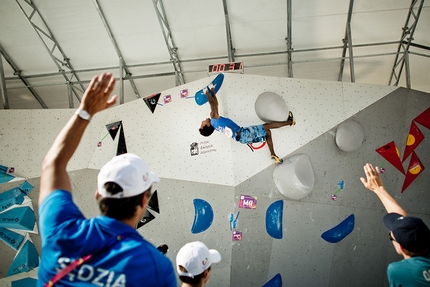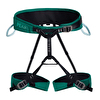Shanghai Olympic Qualifyier Series full report
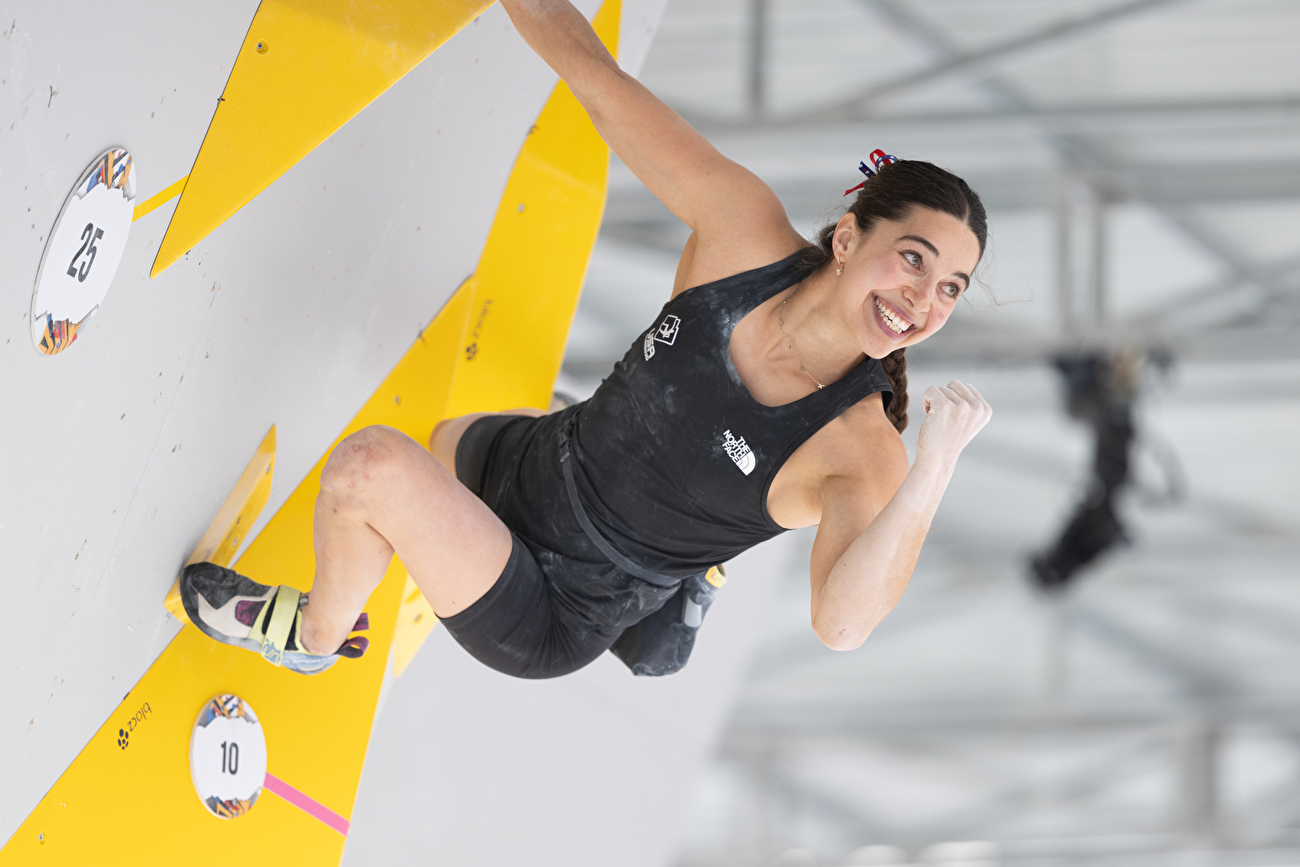
 1 / 49
1 / 49 Nakajima Kazushige / IFSC
Nakajima Kazushige / IFSC
The Olympic Qualifier Series is composed of two legs, the first one in Shanghai from 16 to 19 May, and the second one in Budapest, Hungary, from 20 to 23 June. Shanghai, the first Olympic Qualifying Event, was the first draft of a worst-case scenario for those climbers still looking to qualify for the Paris Olympics. With the second and final qualifying event taking place in Budapest, Hungary, next month, these two events are the last opportunity for the world’s best competition climbers to gain a place in Paris.
The singular goal of the climbers taking part is to place as highly as possible, getting vital points that will be added to those gained in Budapest, the total finally deciding the remaining quota for Paris. With two climbing events, Combined and Speed, taking place over three days in a huge multisport event alongside BMX, Skateboarding and Breaking, The Olympic Qualifying event in Shanghai was to prove a melting pot of nationalities, tension, despair and celebration.
It is easy for those of us who are fans of climbing to list who we expect to perform at big events, but with all the pressure, the eyes of the global audience plus the stresses of travel, going into the event the tension was clear, upsets almost inevitable. A bad performance in Shanghai could render a good result in Budapest almost irrelevant, and from the qualifying rounds on (thankfully streamed by the Olympic Channel), social media slowly filled with despondent posts from climbers who had watched their dreams, their training, their sacrifice, melting through their worn and bloodied fingers.
From the start of both Speed and Combined the upsets were coming thick and fast, for Polish speed star Patrycja Chudziak, all her training and hard work was undone as she flinched early, a false start taking her out of contention without even completing a run up the 15 meter speed wall. For 2020 Tokyo Olympian Rishat Khaibullin a fall on one route and a stumble on the other spelt disaster, and in a matter of heart beats the Kazak star went from being a favourite for a repeat Olympic appearance, to the slimmest of hopes.
In Combined Boulder & Speed several Tokyo Olympians also struck trouble, with the likes of Petra Klingler, Kyra Condie and Alannah Yip in the Women’s, and Mikael Mawem and Sean McColl in the Men’s, all struggling to find a rhythm and ending up deep in the field.
The flip-side to this of course is that where some struggle, others excel. Names virtually unknown to us in the last Olympic cycle were surging up the leaderboards, joining the established favourites and challenging the pundit’s predictions. In Speed it was the likes of 17-year-old Zachary Hammer, in Combined Boulder & Speed it was the British duo of Hamish McArthur and Erin McNeice, as well as the likes of home favourite Zhilu Luo, and French brother and sister duo (and second generation competition climbers) Zelia and Sam Avezou.
Of the Climbing represented in the Olympics, Speed is obviously the easier to follow. What it lacks in spectacular moves and building drama, Speed replaces with explosiveness and “blink and you’ll miss it” action. It also films well, a whole run being a 5 or 6 second highlight package.
In Shanghai it was clear that the Speed event had a great following. Maybe it was the strong presence of local Speed stars? Maybe it was the fact that the whole Finals fits comfortably within an hour which is great for the casual viewers? Whatever the reason, it was great to see a solid number of spectators gather for finals and they really got a great, intense show! Speed events can be difficult to break down, with winning margins often being in the hundredths of seconds and the races coming thick and fast due to the 1 vs 1 elimination format. A single slip at the highest level and its competition over, a false start and it’s time to pack your bags. Instead let us look at the growth of the Speed superpowers, Indonesia, China, Poland and the US. With Olympics fast approaching it has been the time for them to shine at both the Continental qualifiers and World Championships, but there are still seven spots for both Men’s and Women’s to be decided and the competition is fierce.
In the end it was the Asian superpowers that stamped their authority on the event, with Yafei Zhou of China beating out Rajiah Sallsabillah of Indonesia in Women’s event, closely followed by the field in which the slowest time in the top 16 would’ve won World Championships only 7 or 8 years ago.
It was a similar but flipped result in the Men’s finals with Indonesian Veddriq Leonardo beating home favourite Peng Wu in the big final, and the times remaining blisteringly fast throughout. Speed can be very wall and conditions dependant and Shanghai was obviously right in the sweet spot for fast, close racing!
The Combined discipline, as a counterpoint to Speed has three rounds, with a semi final of 20 then whittling the field down to the exclusive eight finalists. For the Men this meant a challenging Boulder round, followed by a Lead route that offered reasonable separation. Amongst the big names to fall at this hurdle, the likes of Stefano Ghisolfi, Yufei Pan, Alexander Megos and Mejdi Schalck at least left the event knowing that there is still some hope if they perform well and other struggle in Budapest. Likewise for the Women, with strong climbers like Laura Rogora, Jain Kim and Camilla Moroni knowing that although they weren’t able to fully capitalise at this event, a slim lifeline remains for their dreams of Olympic glory.
And so at last, the Finals. And what can be said of the finals? In a word you could describe the Women’s final as inconsistent. The setting for the Bouldering proved problematic, not so much for its difficulty, but because two problems were effectively too easy for the bulk of the field and the other two, too hard. This meant that with the exception of Brooke Raboutou of the US who looked in imperious form, and Zelia Avezou of France, who struggled, there was minimal point separation between the finalists going into Lead. Unless there was a shock upset, Brooke would be cruising to first, and the others were going toe to toe, separated by almost nothing.
Luckily for us as fans, and of course for the IFSC who have so much riding on this event, the women’s Lead final gave us a battle. Chaehyun Seo of Korea came out last and almost managed to snatch an unlikely victory, with Brooke hanging on for the win by just a couple of holds overall, and young British star Erin McNeice just edging Japanese star Miho Nonaka by a single attempt in Boulder.
The Men’s final was arguably a more enjoyable spectacle, with a tough Bouldering round providing clear separation before the climbers came back out to face the Lead route.Only French star Sam Avezou had really struggled to get going on the Boulders, and it looked like he was just out on skin, or energy, or both. Favourite going into the event, Czech Adam Ondra, led out of the Boulder round, this time followed by the French Paul Jenft and yet another young British climber, Hamish McArthur. However, scores were tight, and it would be decided on the Lead route. At the last, Korean rising star Dohyun Lee showed that his superb form in qualifying and semi-finals was not a fluke, taking a hard-fought, gritty victory by topping the route. The second position on the podium went to El Matador himself, the winner of the 2020 Olympic Gold medal, Alberto Gines Lopez who also topped the final route, giving himself the slimmest of edges over Ondra who fell short of the top, consigning himself to a still superb and very valuable, third.
All in all the Olympic Qualifying event will be seen as a success, but mostly it just set the stage for next month’s all important second and final qualifying event in Budapest, Hungary. Yes, it put some athletes in the box seat and yes, for others it crushed dreams, but as an event it lacked the deep, knowledgeable crowds you see in established climbing hubs. And of course being an event for those yet to qualify, we were left wondering how the athletes competing in Shanghai would’ve fared if the top climbers who had already stamped their tickets to Paris were in attendance… I guess that is a question only the Olympics can answer at the start of August.
by Eddie Fowke



 Copia link
Copia link
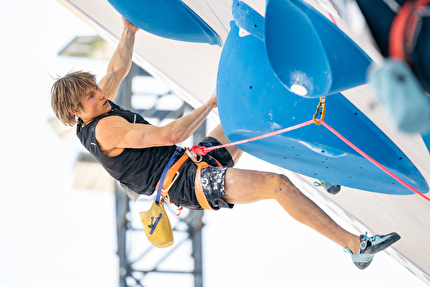
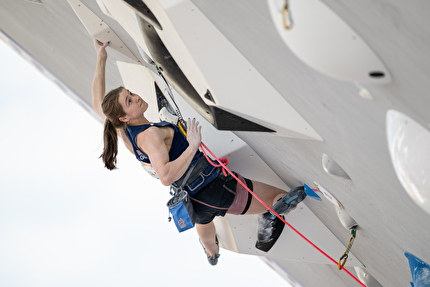
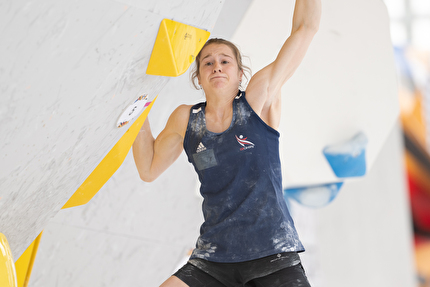
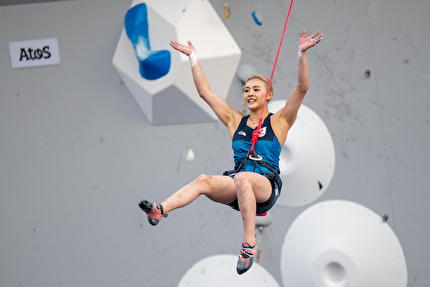
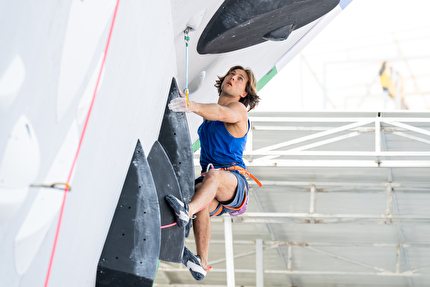
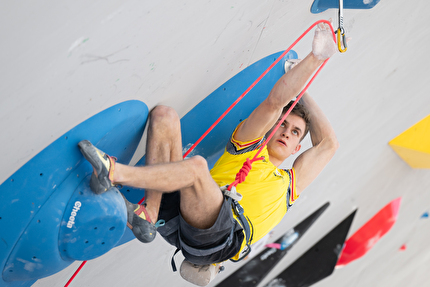
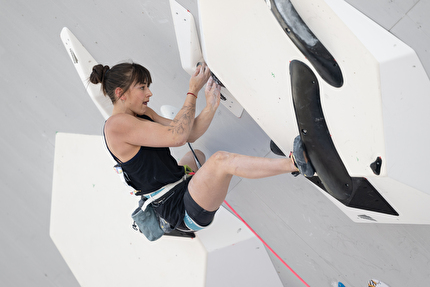








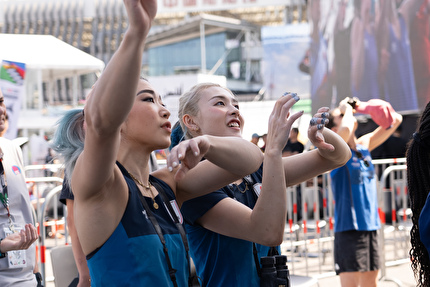
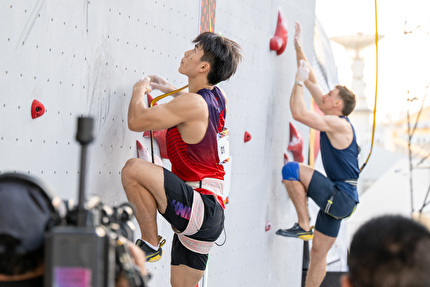

 See all photos
See all photos
